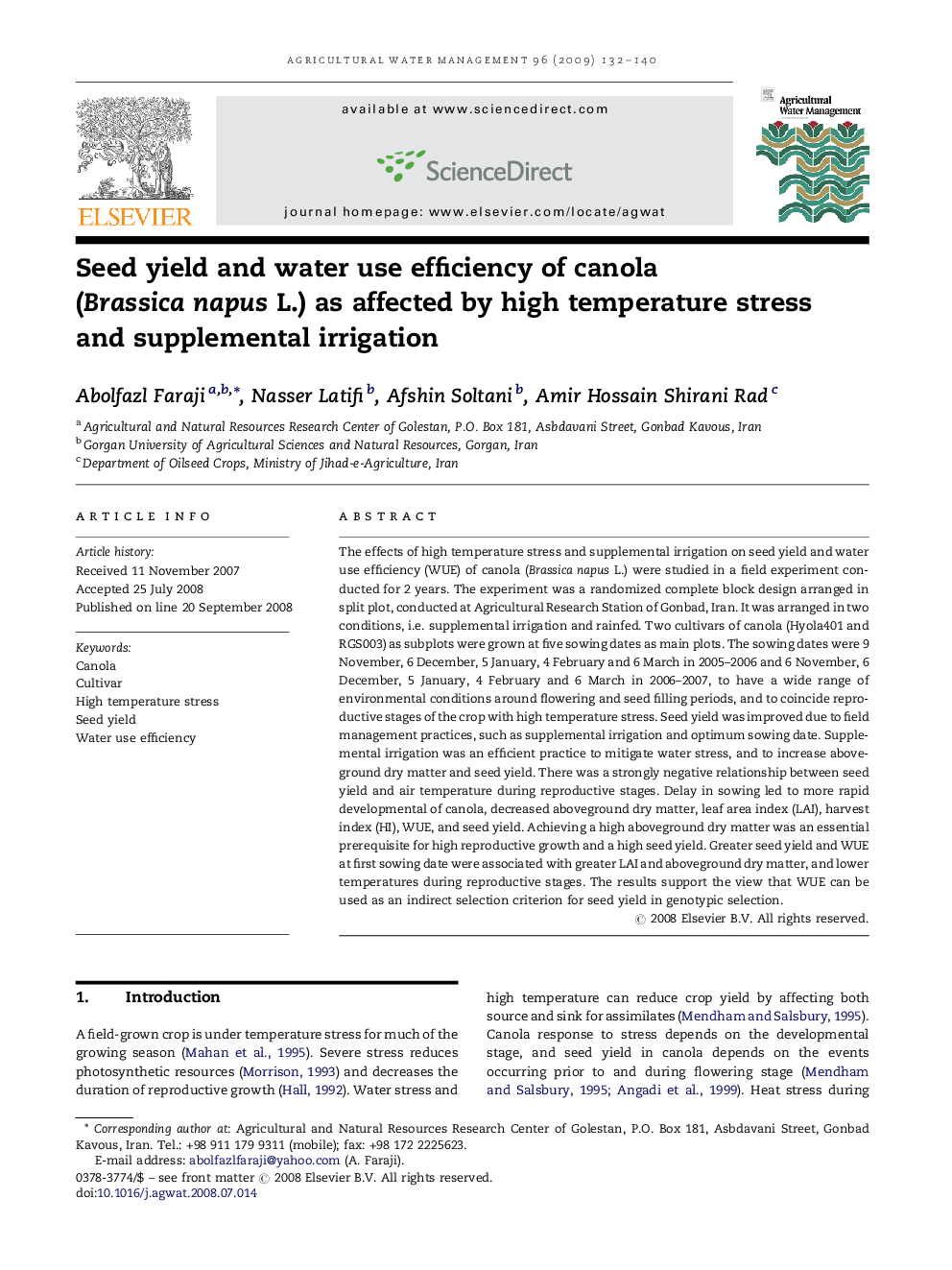| Article ID | Journal | Published Year | Pages | File Type |
|---|---|---|---|---|
| 4479975 | Agricultural Water Management | 2009 | 9 Pages |
The effects of high temperature stress and supplemental irrigation on seed yield and water use efficiency (WUE) of canola (Brassica napus L.) were studied in a field experiment conducted for 2 years. The experiment was a randomized complete block design arranged in split plot, conducted at Agricultural Research Station of Gonbad, Iran. It was arranged in two conditions, i.e. supplemental irrigation and rainfed. Two cultivars of canola (Hyola401 and RGS003) as subplots were grown at five sowing dates as main plots. The sowing dates were 9 November, 6 December, 5 January, 4 February and 6 March in 2005–2006 and 6 November, 6 December, 5 January, 4 February and 6 March in 2006–2007, to have a wide range of environmental conditions around flowering and seed filling periods, and to coincide reproductive stages of the crop with high temperature stress. Seed yield was improved due to field management practices, such as supplemental irrigation and optimum sowing date. Supplemental irrigation was an efficient practice to mitigate water stress, and to increase aboveground dry matter and seed yield. There was a strongly negative relationship between seed yield and air temperature during reproductive stages. Delay in sowing led to more rapid developmental of canola, decreased aboveground dry matter, leaf area index (LAI), harvest index (HI), WUE, and seed yield. Achieving a high aboveground dry matter was an essential prerequisite for high reproductive growth and a high seed yield. Greater seed yield and WUE at first sowing date were associated with greater LAI and aboveground dry matter, and lower temperatures during reproductive stages. The results support the view that WUE can be used as an indirect selection criterion for seed yield in genotypic selection.
